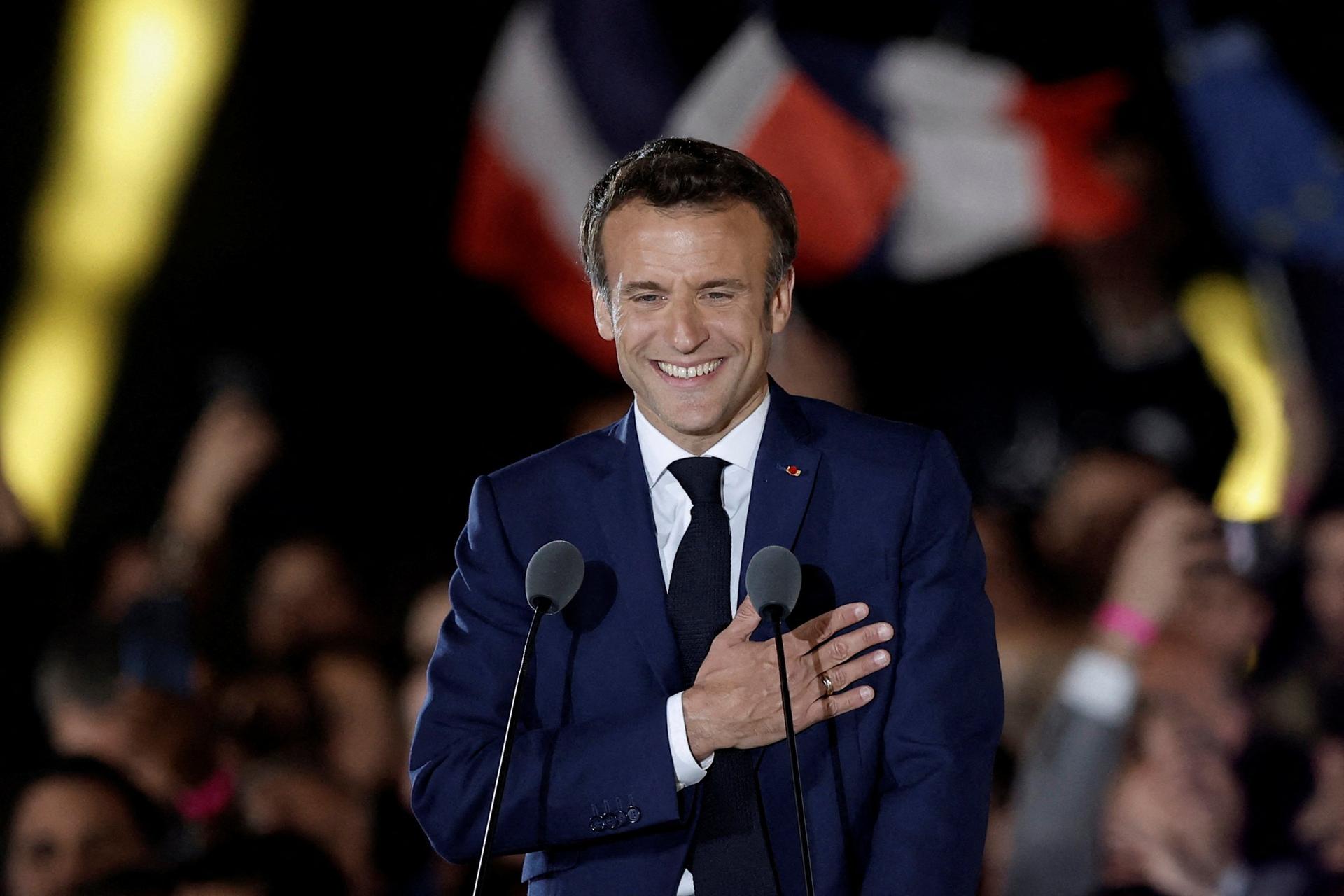VATICAN CITY — The head of the French bishops’ conference welcomed the reelection of President Emmanuel Macron, but also warned of growing social divisions, after the vote was marred the stabbing of a Catholic priest and nun.
Archbishop Éric de Moulins-Beaufort of Reims said the election revealed “an increasing rupture … which is geographical but also separates those above from those below. This is worrying for our country’s future.”
The bishops’ conference president gave his reaction in an April 25 French-language interview with Vatican News following Macron’s April 24 victory over his far-right challenger, Marine Le Pen.
He said most French voters had been unwilling to “embark on the adventure” likely to be signified by Le Pen’s election.
However, he added that the result, amid rising poverty and exclusion, also highlighted limits to the “development model” followed by France since World War II.
“We see this in terms of the distribution of wealth and the ecological and social crisis — yet while we touch the limits of one system, we also struggle to imagine another,” Archbishop Moulins-Beaufort said.
“What is now clearly needed is a collective project that can truly bring people together by transcending social classes, religious affiliations and other divisions. But this is proving difficult, and it’s where politics finds itself today.”
Macron won a second five-year term with 58.5% of votes against Le Pen’s 41.5% in the April 24 presidential runoff. He became the first French head of state reelected in two decades.
At a late-night Paris rally, he promised supporters he would find answers to the “anger and disagreement” that had driven citizens to back the far right.
The election ballot was marred by a knife attack on a Catholic priest and elderly nun at Nice’s Saint-Pierre-d’Arene church, shortly after the start of the 10 a.m. Mass.
In a statement, the Nice Diocese said the life of Father Krzysztof Rudzinski, a priest from Suchowola, Poland, who had ministered at the parish for 10 years, was not in danger, and it thanked security forces and officials for their “support and presence.” A 72-year-old nun was injured when she attempted to stop the attack.
Meanwhile, the prefect of the southern Alpes-Maritimes region, Bernard Gonzalez, discounted a terrorist motive for the attack and said the assailant, a local man unknown to police, had spent time in a psychiatric hospital with bipolar disorder.
In his interview, Archbishop Moulins-Beaufort said the election result was a reminder that the European Union needed to “reinvent itself and prove convincing for citizens, especially those who feel, rightly or wrongly, excluded from the benefits of globalization.”
He added that some key government policies, from legalized euthanasia to assisted reproduction, had reflected “a more or less conscious conspiracy with the market,” which the Catholic Church would resist.
“In a hypertechnical world like ours, there’s a great temptation to solve all the difficulties and trials of life by technical means,” the bishop said. “Our role to defend the deep meaning of conception and human life lived to the end in trust and surrender, where we all help each other. This is where there is certainly room for improvement.”















